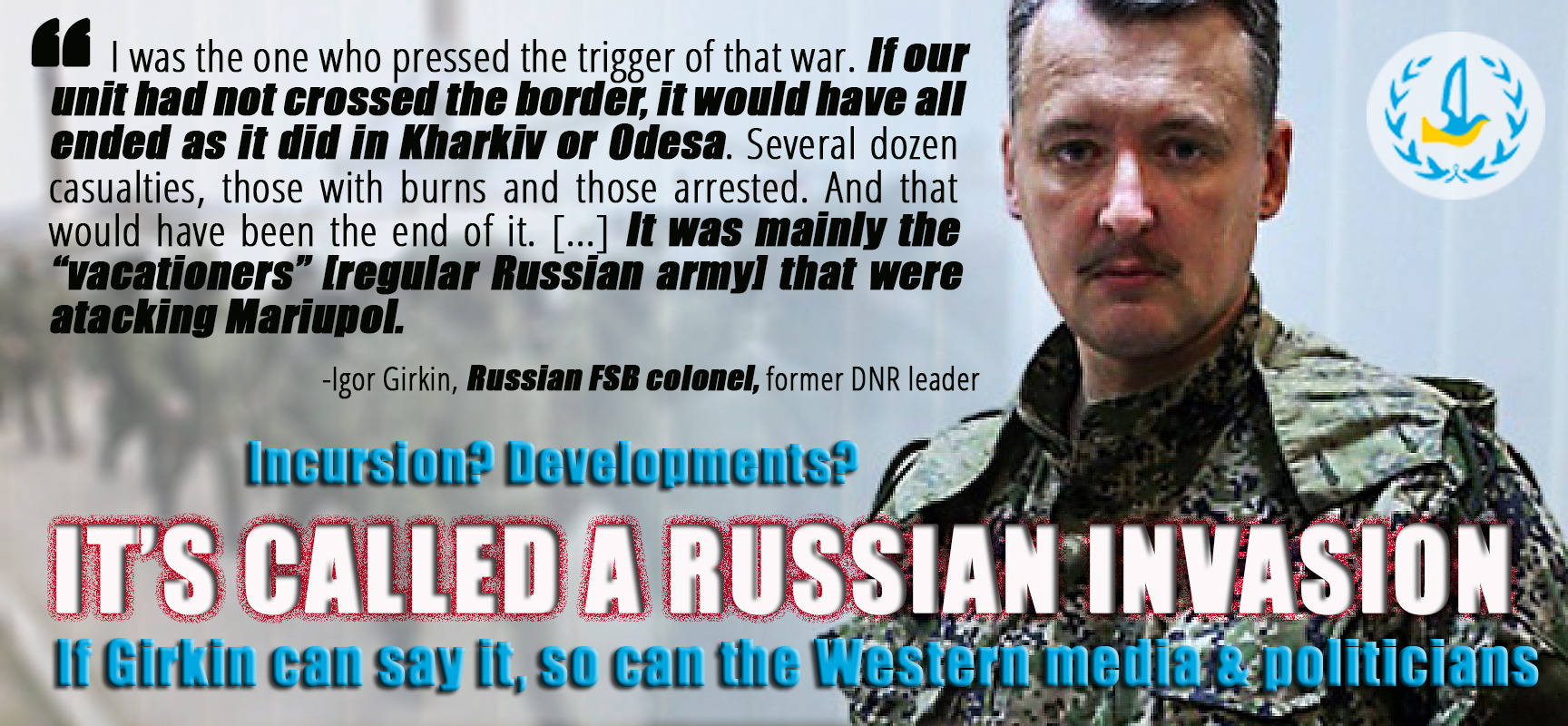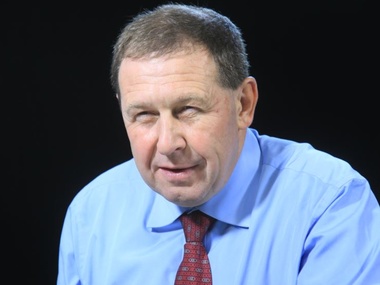to have been twice censored, in which Girkin stated that he is an FSB colonel and doesn't hide it (translation of its uncensored version on Politnavigator here). Here we bring the major takeaways from the two interviews, filling in an analysis of the November 19 article by Dmitry Chekalkin with the censored parts from the December 1 article.
The interview with the terrorist Igor Girkin aka "Strelkov" is actually quite shocking. Having the potential to bring about a Watergate scenario, which resulted in the impeachment of the President, or to become something like the Pentagon Papers which were a strong factor in the termination of the Vietnam War, Girkin's interview became merely a source for citations. However, there is still a chance the article could become key evidence in a trial at the Hague Tribunal. It is important, for the sake of Russia’s future, that such a trial should eventuate.
The interview titled “Who are you, Strelkov [the Shooter]?” begins with Girkin’s sentimental recollection of the wars he fought in. “It’s my fifth time,” says the young Ogre. The surreal interview is akin to listening to a maniac who flicks through a photo album of his victims as he reminisces the gory details.
[Ed: An important detail from Girkin's biography that was censored by ria.ru in that he is a FSB colonel. "I really am a FSB colonel, and I don't hide it, and in general I don't recommend you to call a military serviceman by any rank lower than his actual one," he responded to a citation of critics claiming that Girkin is only a sub-colonel and has no experience in planning military operations.]
No war in East and South Ukraine would have taken place without the involvement of terrorists sent from Russia
The essence of the interview is a confessionary statement by Girkin-Strelkov claiming that no war in East and South Ukraine would have taken place without the involvement of terrorists sent from Russia
, and in particular, the group that he commanded. A close translation of his statement reads: “I was the one who pulled the trigger of this war. If our unit had not crossed the border, it would have all fizzled out, like it did in Kharkiv or Odesa. Several dozen casualties, those with burns and those arrested. And that would have been the end of it… It was practically our unit, which got this ongoing war moving.”
Regarding the local population, which, according to the Russian propaganda, “stood up to protect the Russian world against the Ukrainian fascists,” the Girkin-Strelkov’s story of this goes as follows: “No-one wanted to make war at first… but in April and May [of 2014] everything was building up, and the rebellion area was expanding. We (!) were gradually taking control of populated areas of the Donetsk Republic.”
The “we” pronoun that Girkin uses to refer to the group of Russian terrorists under his own command means a lot in this case. It was precisely “them,” the Russian mercenaries, who “took control of” the Donbas.
According to the “DNR’s Minister for Defense,” this is what was going on in Donetsk before Girkin’s mercenaries marched in: “When we came into Donetsk, everything was just fine there. There was a mayor from Kyiv, the Department of Internal Affairs was still under Kyiv’s command… Donetsk was a totally peaceful city at that time. People were sunbathing on the beaches, sportsmen working out, drinking coffee at the cafe’s. Donetsk looked just like Moscow in summer... And I formed a front from my divisions.”
[Ed: editors of ria.ru deleted Girkin's words indicating that before his arrival Donetsk didn't have any plans for fighting: "Donetsk did not fight and was not preparing to," that "life was absolutely peaceful there," and that "before we left Sloviansk, the Ukrainian side did not prepare to assault Donetsk, they estimated that it would return to them peacefully."]
Girkin openly acknowledges that the main forces that are against Ukraine in Donetsk and Luhansk are the serving troops of the Russian army disguised under the name of “vacationers.”
Further important evidence from Girkin relates to the crucial role of the Russian troops, referred to in the interview as “vacationers.” It is obvious they are serving Russian military personnel, and not ex-members of the armed forces or security services, who Girkin clearly distinguishes from his own army which is composed of the "vacationers" and local militia. The phrases “managed to hold on till the “vacationers” came” and “Mariupol was mainly attacked by the 'vacationers'” and similar indicate that the former “DNR’s Minister for Defense” openly acknowledges that the main forces that are against Ukraine in Donetsk and Luhansk are the serving troops of the Russian army disguised under the name of “vacationers.”
Girkin’s statements about his constantly receiving “commands” and “instructions,” which he attempted to strictly follow, are also of importance. Girkin refutes entirely the propaganda voice on air at the federal level that the initial objective of the whole “Novorossiya” project was to set up an independent state when he says, “First I expected the Crimean scenario - that Russia was going to take over. That was the best option. And the local population was hoping for it. No one cared to fight for the Luhansk or the Donetsk Republics. Initially everyone were for Russia.”
[Ed: Both interviews tell about the chaos that pervades the DNR militant organizations. This is what ria,ru censored from the December 1 interview: "I really didn't want to go to Donetsk, as the commanders there were at war with each other. I didn't want to enter this cesspool, but I had to. The Russian orthodox army, having split in two, was active there. There were 100-150 people in both divisions. There was "Oplot," and "Vostok," Cossack divisions. The Bezlerians (militants under command of Bezler) were there, the Shakhtersk division, the Kalmius battalion. Nobody neither obeyed anybody, nor interacted with anybody else." The outlet also removed Girkin's testimonies about conflicts between him and other commanders, particularly the commaner of "Vostok" battalion Alexander Khodakovsky and "Oplot" commander Alexander Zakharchenko, now DNR head.]
Nothing Girkin told in that interview was something the world did not already know. There has been enough evidence available on this matter. However, these confessionary statements by one of the main participants of the crimes committed by the Russian government in Ukraine, testified voluntarily and published in officially registered Russian media, are remarkable. Even more remarkable is the Western media's commitment to avoid calling the war in Donbas what it really is - a Russian invasion of Ukraine.







